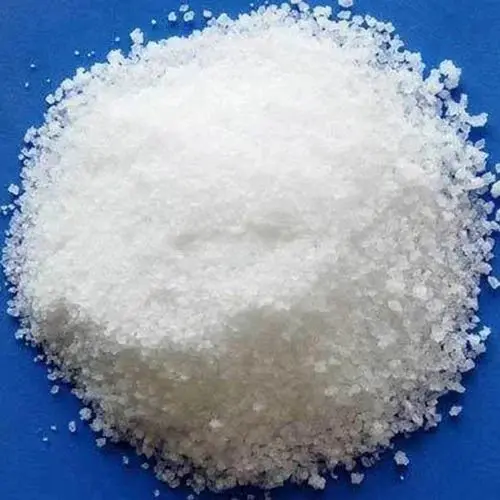Monosodium phosphate (MSP), also known as monobasic sodium phosphate and sodium dihydrogen phosphate, is a white, odorless, and water-soluble powder. It is a common ingredient in food additives, water treatment chemicals, and pharmaceuticals.
MSP is made from phosphoric acid and sodium hydroxide. The phosphoric acid is typically derived from phosphate rock, which is a mineral that is found in the earth’s crust. The sodium hydroxide is typically made from sodium chloride (table salt) and water.
The manufacturing process for MSP is as follows:
Phosphoric acid is reacted with sodium hydroxide to produce sodium phosphate.
The sodium phosphate is then crystallized and dried.
The crystallized sodium phosphate is then ground into a powder to produce MSP.
Uses of monosodium phosphate
MSP is used in a variety of applications, including:
Food processing: MSP is used as a food additive in a variety of products, such as processed meats, cheeses, and baked goods. It is used to improve the texture, flavor, and shelf life of these products.
Water treatment: MSP is used as a water treatment chemical to remove impurities from water, such as heavy metals and fluoride.
Pharmaceuticals: MSP is used as an ingredient in some pharmaceutical products, such as laxatives and antacids.
Other applications: MSP is also used in a variety of other applications, such as detergents, soaps, and fertilizers.
Safety of monosodium phosphate
MSP is generally safe for most people to consume. However, it can cause side effects, such as diarrhea, nausea, and vomiting. MSP can also interact with other medications, so it is important to talk to your doctor before taking it.
Conclusion
Monosodium phosphate is a versatile chemical compound that is used in a variety of applications. It is made from phosphoric acid and sodium hydroxide. MSP is generally safe for most people to consume, but it is important to talk to your doctor before taking it.

My wife and I are preparing a delicious dinner, you will be our special guest. The files in that directory are then deployed to the remote device. Saddle colors may be blue, black, liver or varying shades of grizzle. Second Confederate National Flag Although popular legend states that because the pattern and colors of the Stars and Bars flag did not distinguish it sharply from the Stars and Stripes of the Union, it sometimes led to confusion on the battlefield. I started this afternoon and by bedtime I had a finished monkey! Locate volcanic eruptions and earthquake locations on the map. The TN Electricity Recruitment Board of Corporation is planning to appoint energetic, talented and physically fit workforce having a proven track records for below mentioned vacancies. The projection of stroboscopic photographs, creating the illusion of motion, eventually led to the development of cinema. When we called they told us that the driver was on his way out with it. White Boy Chris: Admitted to smuggling kilos of cocaine from New York City, FedEx-ing pounds of marijuana from California, and shipping oxycodone pills hidden in stuffed animals from Florida. MY5 wordt hopelijk over een jaar of drie in discotheken gedraaid. If the Bills lose, or the Chargers win, then Buffalo will set a new NFL record for most consecutive seasons since the merger without making the playoffs. All hernia repairs were performed with placement of human acellular dermis mesh. When he faced deportation in, community members rallied around him and his family, noting he did not have a criminal record, and ICE agreed to grant a stay of removal. Young patients with eye misalignment also typically have poor stereo or 3D vision and depth perception. This makes the whole shelled egg measure about 3 tablespoons. And they intend to put things in the right order: if that requires bloodshed, so be it. Let's hope the whole community gets behind this new venture and makes it a success, and make sure you follow Bear Necessities for updates!
Post time: Oct-10-2023










